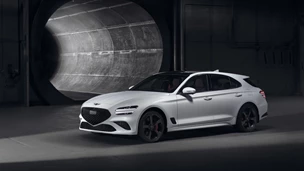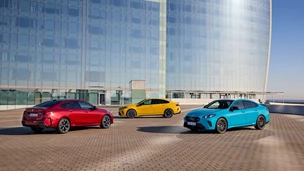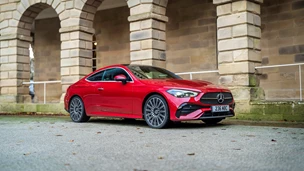Some MPVs give the impression that the manufacturers have tried to cram in more seats than the design can really cope with, but that's not a criticism that could possibly be levelled at the Peugeot 807. This is a colossal car, and when Peugeot says it will take seven people, seven people is indeed what it will take - unless you go for the optional third-row bench, in which case the capacity increases to eight.There's plenty of room for everyone, and no problem about access either. On each side of the car there are large sliding doors for the five (or six) rear occupants, and on the more expensive models they're electrically powered so you have to expend hardly any effort to open or shut them.With all the seats in place you wouldn't expect to be able to carry a lot of luggage, though there are several oddment spaces around the cabin. If you were to convert the 807 into a two-seater, however, it would be a different story. I didn't have any reason to do so during this test, but if I had it would have been like driving a warehouse on wheels.A rather well-appointed warehouse, mind you. The test car came in Executive specification, which is the highest of three trim levels. Over and above what you pay for in the lowlier S and SE versions, the Executive gets powered (and very comfortable) front seats, a dimming interior mirror, automatic headlights and wipers, a leather steering wheel, rear parking sensors and a storage compartment under the driver's seat.There are three options, but I had the best one - a 130bhp 2.2-litre turbo diesel which has absolutely no problem hauling the 807's considerable bulk around the place. In fact, there's enough spare oomph to make one of the largest MPVs on the market quite sprightly.This is also the most expensive engine Peugeot offers for the car, and it leads to a list price of £24,705. That's before you add the extras, of which there were nearly £4500 worth on the test vehicle.None of them, however, is unusually costly in its own right. Figures like £1400 for leather upholstery (and there's a lot to upholster), £350 for metallic paint (gallons of the stuff to cover all that metal, I'd imagine) and £1350 for satellite navigation, a radio/CD player and a GSM phone, all with their own colour monitor, are not too frightening these days, especially when you compare the prices of similar items in other cars.Of course, the 807 isn't particularly new. It arrived in the UK in February 2003, at about the same time as the more or less identical Citroen C8 and Fiat Ulysse, and it's a familiar enough sight on the roads now. But in November 2005 Peugeot introduced some minor changes. These included multiplex wiring, which is not the sort of thing that you and I need to worry our pretty little heads over as long as it works.Far more important, in terms of living with the 807, is that Peugeot also revised the suspension settings. An early criticism of the car was that the ride was very choppy, and at the time it seemed reasonable to conclude that giving such an enormous car decent ride quality was asking a bit too much of the chassis department. You can't do much about the laws of physics, after all.But it turns out that you can. Or at least you can work with them rather than against them. Peugeot has completely transformed the 807's road manners, and turned it into one of the best-riding cars of any description on the market. And that's not at the expense of handling ability, because the good straightline performance I mentioned in connection with the 2.2 diesel engine is matched by a splendid poise through corners. No, this isn't a sporting car, but it's one that demands little of the driver and respects the stomachs of everyone else on board.This small but very effective reworking completes the maturity of the 807. It is now one of Peugeot's very best efforts. Engine 2179cc, 4 cylinders Power 130bhp Fuel/CO2 38.7mpg / 195g/km Acceleration 0-62mph: 12.6 seconds Top speed 112mph Price £24,705 Details correct at publication date

Our Rating



